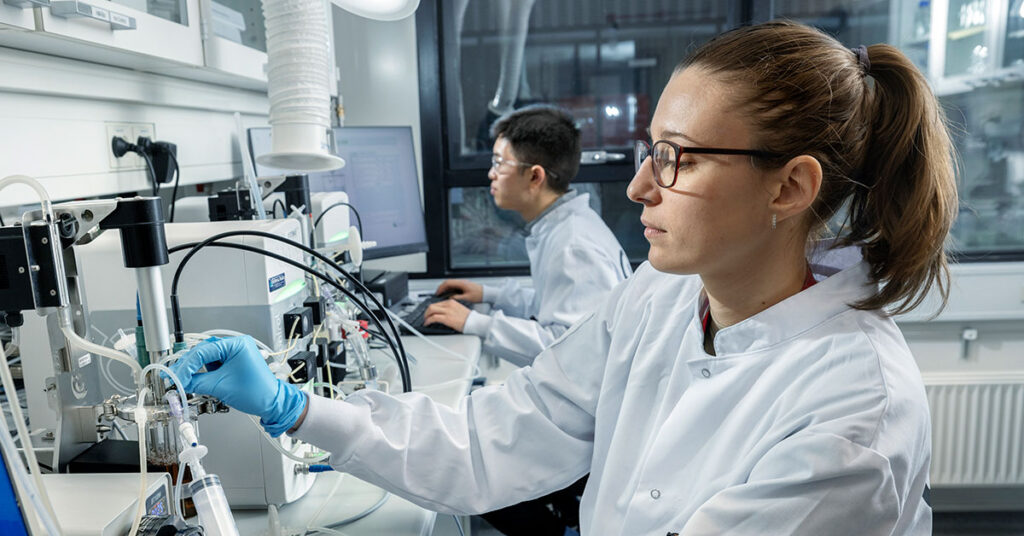John Woodley, PhD, is a professor in the Department of Chemical and Biochemical Engineering at the Technical University of Denmark (DTU). He has published around 300 papers, has an H-factor of 53 and around 10,000 citations, and has supervised around 60 PhD students. Prior to working at DTU, he was a professor at UCL, London. Dr. Woodley divides his research into the three areas described below.

- Biocatalysis and enzyme stability
Dr. Woodley’s primary research is in the field of biocatalysis, where he has been instrumental in driving the process concepts necessary to implement new enzyme-based processes. His work has included studies of two-liquid phase systems, in-situ product removal, substrate feeding, process modelling, kinetics, and thermodynamics, across a range of enzymatic systems. He has also led activities in industrialization and implementation of several processes. In 2021, he was awarded a highly prestigious ERC (European Research Council) Advanced Grant. This will enable pioneering studies into the effect of operational conditions and scale-up on the stability of enzymes, including NOX, ADH, and HMFO. New-to-nature enzymology will be further developed. Collaboration is underway with academic groups in China, the UK, the United States, and the Netherlands.
- Microbial conversion technology
Complementing his work in biocatalysis and enzyme stability, Dr. Woodley has also a particular interest in microbial biocatalysis (two–stage fermentation) where growth and conversion are independent. Recombinant strains are used in close collaboration with DTU Bioengineering and DTU Biosustain, as well as several small companies. Such processes can lead to improvements in productivity, and potentially yield and titer. Here, work is focused around the Novo Nordisk Foundation Fermentation-Based Manufacturing project. Research is currently investigating the effects of scale on microbial conversion, new concepts for the production of tyrosine derivatives, and the possibilities of using P. putida as a biocatalytic host as well as drop-in biocatalysis for lower priced (higher volume products).
- Integrated biopharmaceutical processes
The AIM-Bio project in collaboration with DTU Bioengineering and NC State University provides the platform for the third research area. This work focuses on the integration of product recovery and the bioreaction. Some aspects are analogous to microbial conversion technology, but the emphasis here is on biopharmaceutical production. To enhance the overall yield and productivity of the process, both full- and single- chain monoclonal antibodies are in focus with the aim of direct recovery of either the target product or the impurities from the broth, such as host cell proteins. A very close collaboration with Dr. Ruben Carbonell and Dr. Stefano Menagatti from NC State enables new recovery methods to be tested in a small-scale integrated set-up in GMO labs at DTU. Production is in yeast (P. pastoris) to enable higher productivities, even if at the expense of product concentration, providing an important target for the in-situ product recovery/impurity removal methods. Cell retention methods as well as control of the integrated system to allow extended operation are all being studied.